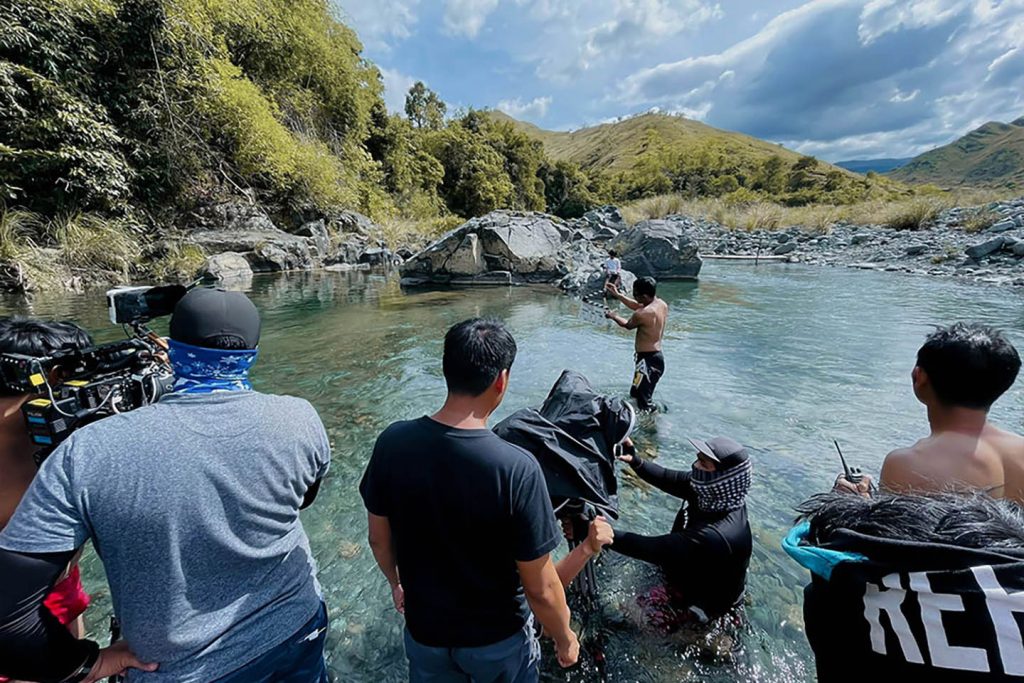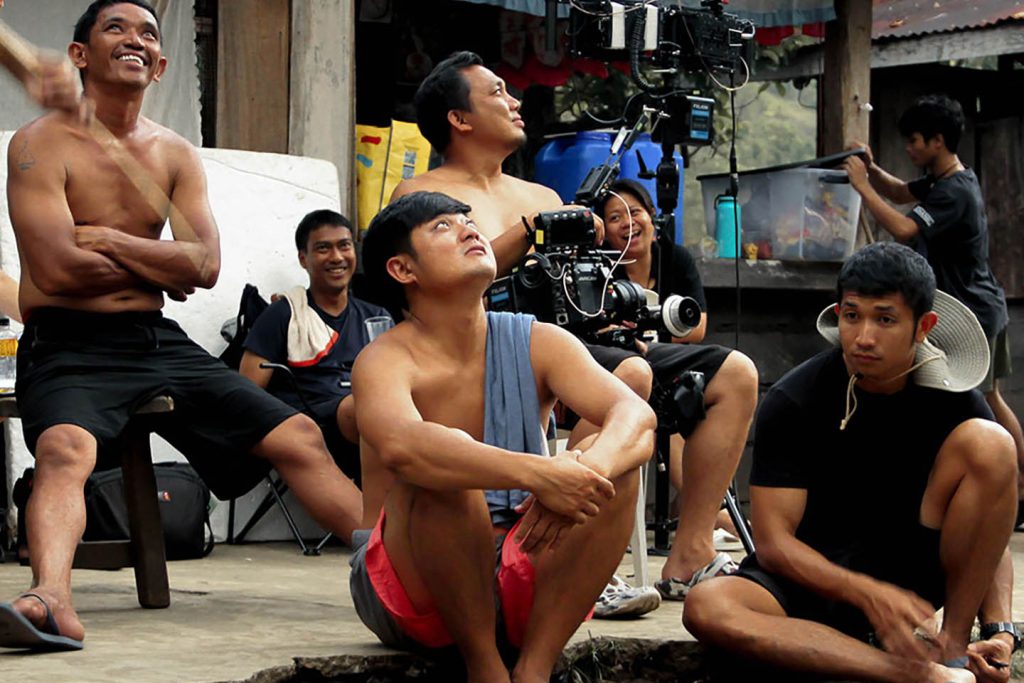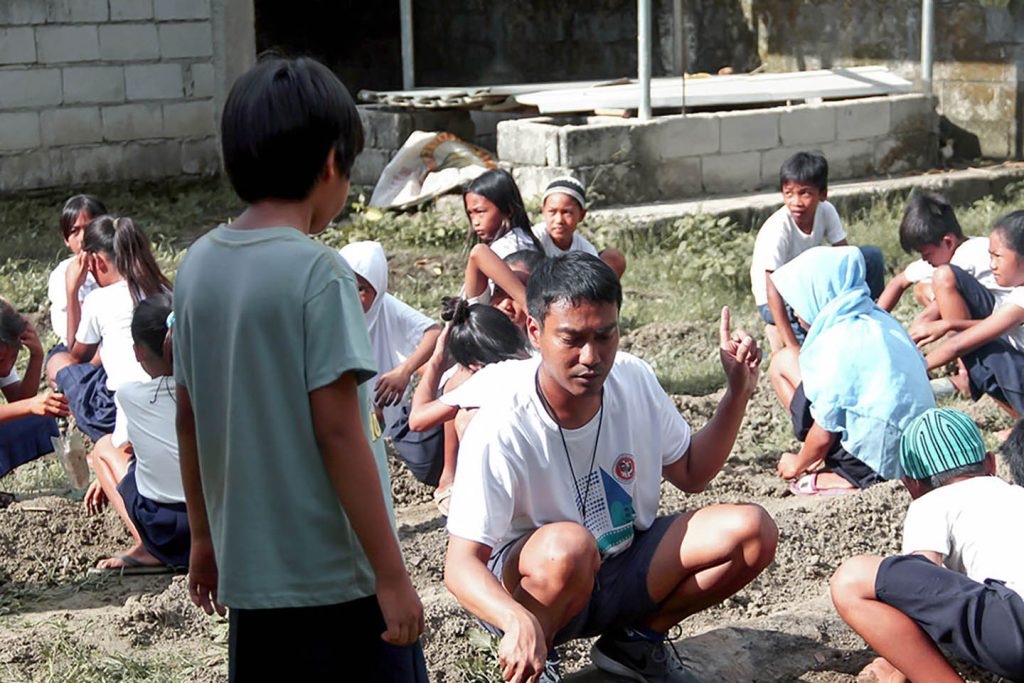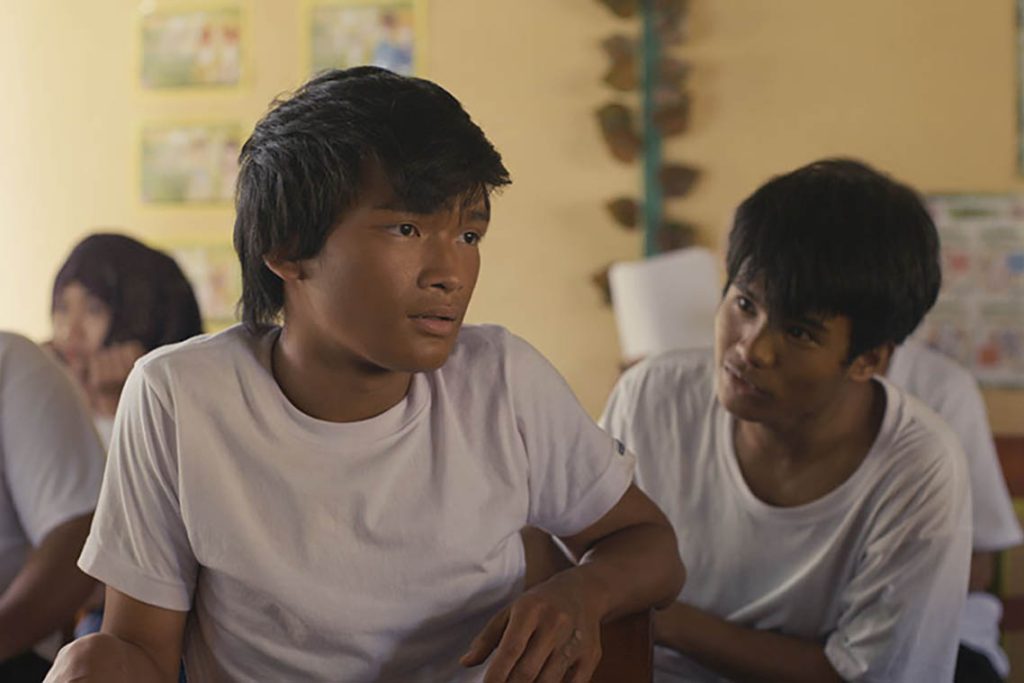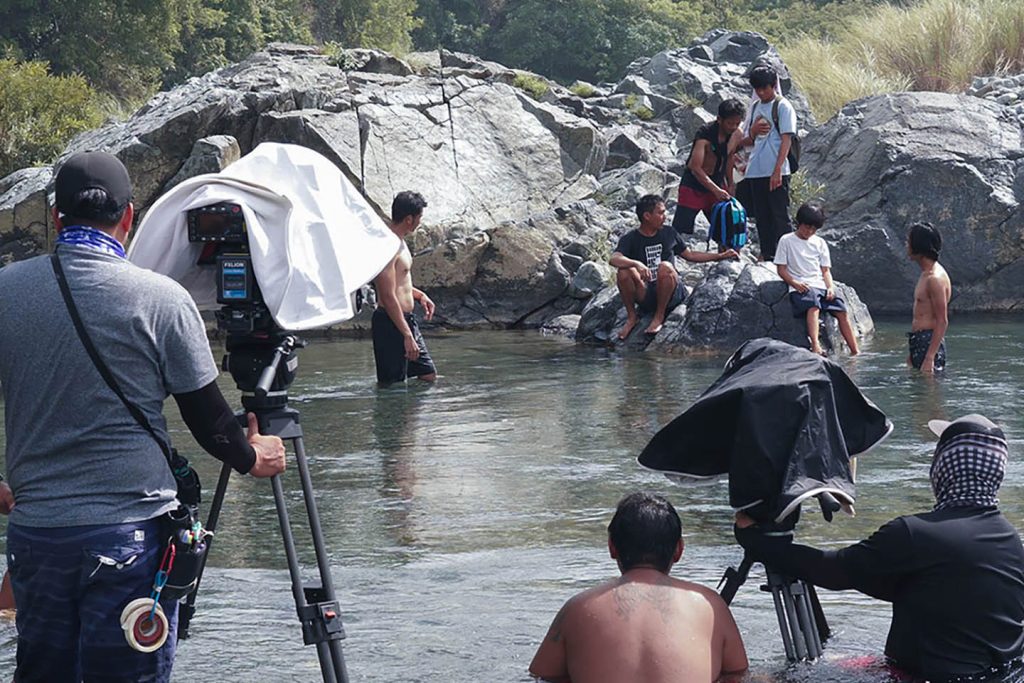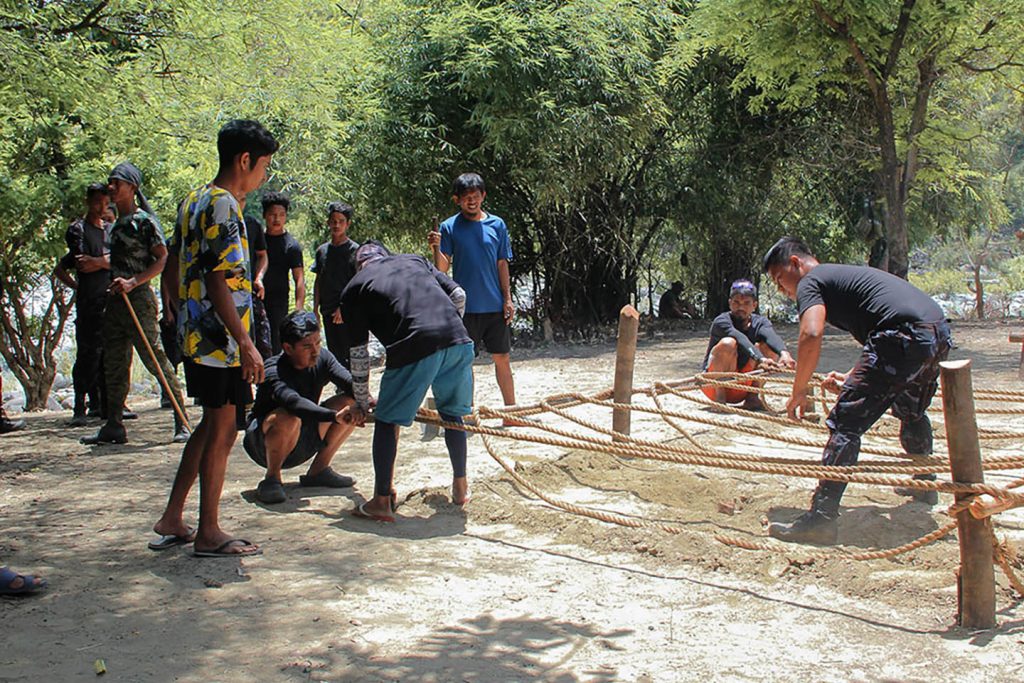MANILA, PHILIPPINES — Cinemalaya continues to break the noise with its entries this year. Among the 11 full-length feature films in the competition is Carlo Obispo’s The Baseball Player.
The Baseball Player is a sincere depiction of what it means to come of age. It wastes no time in delivering a full story with a unique subtlety that is characteristic of an indie. The film is a drama without the melodramatic elements of heavy scoring and tearful school of acting. Instead, the actors give a nuanced performance that gradually builds the story.
The film opens with Khalid (JM San Jose), a child orphaned by the war and taken in by a widow and Amir (Tommy Alejandrino), her son. Amir becomes a brother figure to Khalid who was timid at first and did not speak because of the trauma he had experienced from losing his family. Without giving a flashback, the director was able to show Khalid’s trauma with outbursts, walking out of school, and a particular scene where he drew a bloody scene for a family portrait.
Meanwhile, Amir shows a promising future in baseball but is torn when his uncle recruits him to become a Moro soldier. The ultimatum comes when the final tryouts coincide with the day of his uncle is going to pick him up to train in the camp.
One curious element in the story is Khalid’s fixation on a broken bike. His longing to have one of his own plays on the progress of his healing. The film’s peak comes with Amir fixing the bike and the two of them riding up a hill and Khalid shouting into the void that he could ride a bike now and that he had a new brother.
The Baseball Player is a powerful reminder of how war takes much from children, much too much that even their chance to choose is compromised. Where he needed a profound sense of freedom, Amir made the difficult decision to enlist as a soldier.
The director is a regular Cinemalaya participant having his first feature in 2013, Purok 7, and Gasping for Air in 2016. Like his first Cinemalaya film, The Baseball Player shows the beauty and simplicity of rural life, but more so, its stark contrast against the complication inside a child’s dilemma.
What would have made the film fitting for its title is more scenes on the game of baseball, showing how prodigious Amir is at the game. The film is not superfluous but is reaching. Its strongest moment comes at the end when Khalid splits up from the group of evacuees and it was revealed what path Amir chose and where it got him. The final scene, especially, was powerful enough to break the hearts of its viewers for what happened to the children, leaving no resolution but a mere sound to imply that Khalid, once again, is an orphan of war.
Less is definitely more with this film. It is not for those who expect an action-packed film about war but for those appreciative of slow-paced cinema. But slow as the pace may be, it is not dragging. With an ending that is an intense blow compared to the serene opening of the film, The Baseball Player is definitely a must-watch for the lovers of held-back storytelling.
All things considered, it comes as no surprise that The Baseball Player was hailed Best Film for Full Length Main Competition Feature Film Category, it also got the Best Editing and Best Screenplay. The main protagonist, Tommy Alejandrino, also won Best Actor.
adobo magazine is an official media partner of Cinemalaya.


